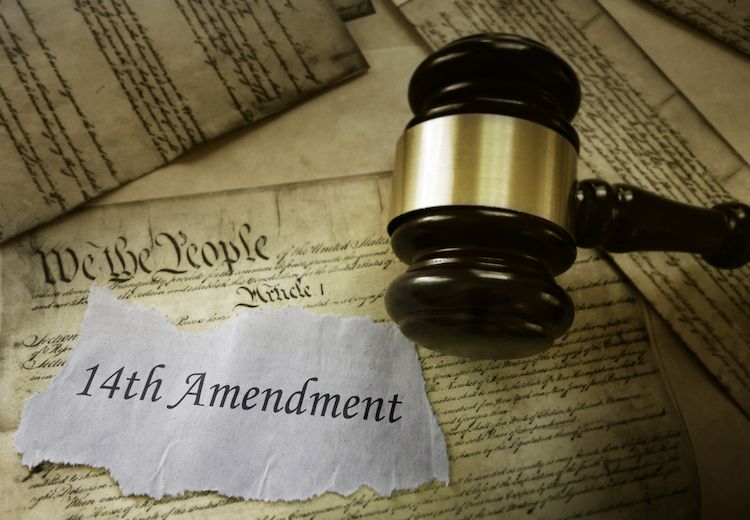[ad_1]
Election Law
GOP can put Trump on primary ballot, even if he is ineligible for office, top Minnesota court rules

There is no state law preventing major political parties from placing people on the ballot in Minnesota, even if they are ineligible for office, according to the Minnesota Supreme Court. Image from Shutterstock.
The Minnesota Supreme Court has tossed a lawsuit contending that former President Donald Trump can’t appear on the primary ballot in the state because he is ineligible for office under the 14th Amendment.
In a Nov. 8 order, the state supreme court said the Republican Party can determine the candidates it places on the primary ballot. There is no state law preventing major political parties from placing people on the ballot, even if they are ineligible for office, the Minnesota Supreme Court said.
The state supreme court also dismissed the plaintiff’s claims regarding the placement of Trump’s name on the general election ballot because they are not yet ripe. The plaintiffs can, however, bring a general election claim in the future.
The group Free Speech for People had filed the suit on behalf of a group of Minnesota voters. The suit argues that Trump is disqualified from office under Section 3 of the 14th Amendment. The provision bars people who have taken an oath to support the U.S. Constitution from holding office if they “engaged in insurrection or rebellion” against the Constitution.
The group contends that Trump is ineligible because he incited the Jan. 6, 2021, attack on the U.S. Capitol.
Similar suits are pending in other states, including Colorado, Michigan and South Carolina. A federal magistrate judge has recommended dismissal of the South Carolina suit, according to the Washington Post.
The Washington Post and the Minneapolis Star Tribune have coverage of the Minnesota Supreme Court decision. How Appealing noted the Minneapolis Star Tribune story and linked to the opinion.
[ad_2]




